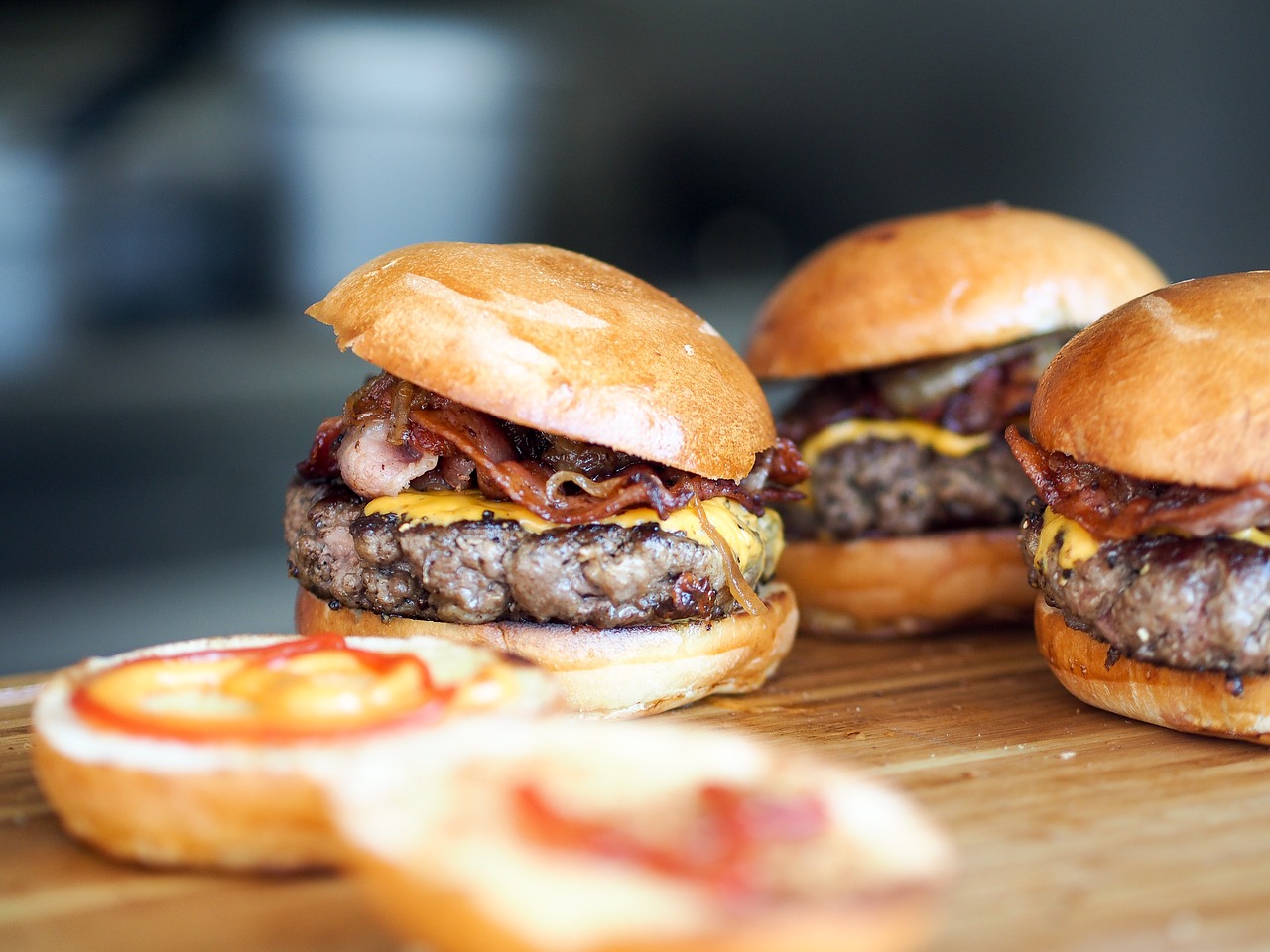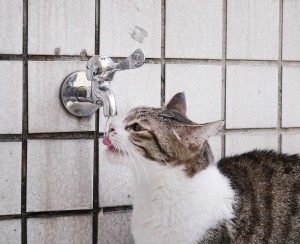
Just recently I read an article in a popular magazine about healthy eating and weight-loss. It was the same unfounded and short-sighted garbage that got people looking for diets in the first place.
“You must eat 3 meals a day with 2 additional snacks, to keep the metabolism firing.”
“In order to lose weight you need to eat clean.”
“Never skip meals.”
Then they went on praising chia seeds and other “super-foods”, that would somehow magically transform you into a fat-burning machine (it’s a miracle we survived for so long without them). The article concluded with a couple other cringe-worthy statements. Not a single mention of calories, energy balance or thermodynamics.
You’d like to know the name of said magazine, eh? Don’t bother. It makes no difference. They’re all utter BS.
But like I said before, dieting doesn’t have to be a struggle. You don’t need to abandon your family to live off of berries and tree bark in the woods. You don’t even have to say goodbye to the foods you love. I’m here to tell you that dieting can be a pain-free and even rewarding experience if done right.
Why do people struggle so hard with losing weight then?
When someone decides to go on a diet, they throw moderation and common sense out the window faster than you can scream “sugar kills”. People go out of their ways to make sure they are absolutely miserable during their weight-loss process. That is also why most diets fail to deliver lasting results.
I believe this behavior stems from a lack of understanding the weight-loss fundamentals. In order to lose weight, you need to create an energy deficit (aka eat less). How you go about creating that deficit, is secondary (read, read, read, read). This is so trivial, yet I feel like a rocket scientist telling you these things. That just goes to show you how little power logic has in the face of fad diets, superfoods, and magic pills.
“Wait, Victor… you mean I can eat the foods I like and still lose weight?”
You absolutely can. And trust me when I say, this is the only way of making weight-loss sustainable. But there are a few additional strategies that will make your fat-loss program seem almost effortless. Who knows, you might actually start enjoying the process.
1. Find the most enjoyable way to eat less

I advise you to reduce your meal frequency to make your diet more enjoyable.
Why? If you eat less often, you can sit down to satisfying meals while still losing weight. Calories, remember? Two 1000 calorie meals are more satisfying and filling than five 400 calorie meals.
“But won’t going long periods between meals slow down my metabolism and put me in starvation mode?”
This ancient myth is a prime example of bogus science with no evidence to back it up. Actually, recent studies have proven the opposite to be true (read). A higher meal frequency is positively correlated with a higher caloric intake. Big surprise, I know.
The easiest way to go about this is to skip breakfast and eat 2 big meals (+ maybe a high-protein snack) a day. This will allow you to stay in shape year-round without ever feeling deprived. Works for me, since I’m rarely hungry after waking (and boy do I enjoy putting away huge meals). Check out my article on intermittent fasting if you want to dig deeper.
Please don’t tell me you still believe breakfast is the most important meal of the day…
2. Create a moderate energy deficit
Another reason people can’t stick to their weight-loss programs, is they eat way too little. Creating a huge energy deficit is bound to have you crashing and burning after the initial motivation subsides.
Don’t go on a 800-calorie crash diet. If your energy intake is chronically low, you’ll experience a whole host of unpleasant effects (i.e. metabolic downregulation, hormonal decline, rebound weight gain).
Eat at a moderate deficit, that allows you to function at close to 100%. If you feel tired, moody and light-headed all the time, you’re pushing it too hard. 20-25% below maintenance calories is a good place to start.
3. Don’t overemphasize protein
While protein has been shown to provide several benefits in calorie restricted scenarios (read, read), there’s no need to eat hefty amounts of it at every meal. If you can’t eat a huge steak for dinner or miss your post workout shake, don’t panic. You won’t become catabolic and lose all your hard earned muscle as long as you stick to a reasonable deficit (Helms et al, 2013).
Increasing your protein intake also won’t make you magically drop body-fat. Calories are still the nr. 1 factor you have to account for. Aim for around 1 gram of protein per pound of bodyweight (2.2 grams per kg) and eat balanced meals of carbs, fats, and protein. Disregard the chicken breast salads or the tuna and rice meals, unless that is what you want to eat. Only eat meals you thoroughly enjoy.
4. Stay hydrated
 Drink your water. Aim for 2-3 liters every day. In addition to curbing your appetite and keeping you satiated between meals, water has been shown to increase energy expenditure as well as fat oxidation (read, read). This is an underutilized, but highly effective weight-loss tool.
Drink your water. Aim for 2-3 liters every day. In addition to curbing your appetite and keeping you satiated between meals, water has been shown to increase energy expenditure as well as fat oxidation (read, read). This is an underutilized, but highly effective weight-loss tool.
Effortless fat-loss in a nutshell:
- Create an energy deficit in the most enjoyable way for you
- Don’t restrict calories too much
- Don’t overemphasize protein
- Stay hydrated
Try these strategies and let me know how they work for you.
Thank you for reading
Victor
Resources:
Farnsworth et al(2003). Effect of a high-protein, energy-restricted diet on body composition, glycemic control, and lipid concentrations in overweight and obese hyperinsulinemic men and women. Am J Clin Nutr. 78(1):31-9.
Golay et al (2000). Similar weight loss with low-energy food combining or balanced diets.Int J Obes Relat Metab Disord. 24(4):492-6.
Helms, E.R., Zinn, C./ Rowlands, D.S./ Brown, S.R. A systemic review of dietary protein during caloric restriction in resistance trained lean athletes: a case for higher intakes. In: Int J Sport Nutr Exerc Metab. 2014 Apr;24(2):127-38.
Leibel et al. (1992). Energy intake required to maintain body weight is not affected by wide variation in diet composition. Am J Clin Nutr. 55(2):350-5.
Murakami, K./ Livingstone, M.B. (2015). Eating Frequency Is Positively Associated with Overweight and Central Obesity in U.S. Adults.J Nutr. 145(12):2715-24.
Parker et al (2002). Effect of a high-protein, high-monounsaturated fat weight loss diet on glycemic control and lipid levels in type 2 diabetes. Diabetes Care.(3):425-30.
Stookey et al (2008). Drinking water is associated with weight loss in overweight dieting women independent of diet and activity. Obesity (Silver Spring).16(11):2481-8.
Strasser, B./ Spreitzer, A./ Haber, P. (2007). Fat loss depends on energy deficit only, independently of the method for weight loss.Ann Nutr Metab. 51(5):428-32.
[…] that you have to be miserable chasing your dream body. That’s simply not the case. If you do it right, you’ll feel better with every passing day. That’s how this thing works. This is how […]